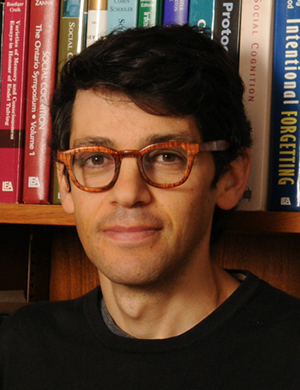Economist Raymond Fisman to Join BU Faculty
Known for connecting theory to the real world

BU’s newest economics professor has garnered a lot of attention for parking tickets. Not tickets Raymond Fisman received himself, but those in his much-cited 2006 study showing that UN diplomats from countries with a reputation for corruption, as well as anti-American sentiment, get more parking tickets than diplomats from countries that are considered less corrupt, like Sweden.
“It’s definitely had more than its 15 minutes of fame,” says Fisman, who will join the College of Arts & Sciences faculty on July 1 as the first Slater Family Professor in Behavioral Economics. “It’s crazy the way that one keeps popping up via Google Alerts.”
Fisman conducted the study with Edward Miguel from the University of California, Berkeley, with whom he also wrote Economic Gangsters: Corruption, Violence, and the Poverty of Nations, a look at how corruption takes hold in developing nations and steps that might be taken to alleviate it.
“He’s doing really creative stuff like that,” says Barton Lipman, a CAS economics professor and department chair. “He’s trying to understand how and whether economic theory connects to the world.”
Fisman has worked at Columbia University for 16 years, where he is currently Lambert Family Professor of Social Enterprise and codirector of the Columbia Business School Social Enterprise Program. He’s the author, with Tim Sullivan, of 2013’s The Org: The Underlying Logic of the Office, about navigating dysfunction in the modern workplace. His next book will examine how our perceptions of markets have changed over the last half-century, and he already has another manuscript about corruption taking shape, in collaboration with a political scientist.
“He’s a remarkable scholar, he’s creative, he’s incredibly energetic, he works in so many different directions and on so many interesting things,” says Lipman. “And while he’s doing really cutting-edge research, it’s the kind of cutting research that I can actually explain to someone who’s not an economist and it will make sense, which is nice.”
Behavioral economics is the study of how human factors influence economic decision-making. At BU, Fisman will teach development classes to undergraduates and political economy and public finance to PhD students.
“Professor Fisman is a very highly regarded scholar, and he brings a remarkable range of expertise to economics at BU,” says Jean Morrison, provost and chief academic officer. “As we strive to forge new connections across disciplines and campuses in scholarly research, Professor Fisman’s dynamic work in managerial economics and international development has applicability to so many areas. We believe he has the potential to do great things here to advance his area of study and are excited for what the future holds.”
A big factor in his coming to BU, Fisman says, is the opportunity to join a department that is both academically deep and very friendly. “Both of those things are very important to me,” he says. “I’ve had wonderful conversations with people in the department. There’s a guy who studies bid-rigging in the Italian government—that’s a topic near and dear to my heart.”
Ancillary factors include a couple of friends who have joined the University in other departments and the benefits of moving to Massachusetts—like a backyard for his children.
Fisman says he was also impressed by a dinner conversation with President Robert A. Brown. “He has a clear sense of where he is trying to take the University. You can talk to him about what you are doing and issues around how the University is managed, and he has thoughtful and well-reasoned answers,” Fisman says. “It’s not clear how much that is felt in one’s day-to-day life, but it matters a lot for things like how resources are allocated within the University.”
He acknowledges that his studies may seem wildly diverse, but it’s the outcomes that matter, he says.
About the parking study: “Do I think we learned something completely novel about the world? No, of course not, but it has enormous pedagogical value,” says Fisman. “If it weren’t so evocative, it wouldn’t have been written up last week in some totally tangential context about the Petrobras scandal in Brazil.”
Lipman says the economics department is very excited about Fisman’s decision to come to BU. “He and I work in very different areas, but every time I talk to him, I have such a good time hearing what he’s doing and what he’s thinking about. He’s just an intellectually exciting person.”
Comments & Discussion
Boston University moderates comments to facilitate an informed, substantive, civil conversation. Abusive, profane, self-promotional, misleading, incoherent or off-topic comments will be rejected. Moderators are staffed during regular business hours (EST) and can only accept comments written in English. Statistics or facts must include a citation or a link to the citation.